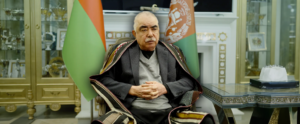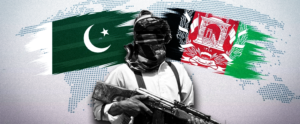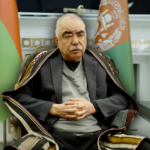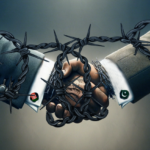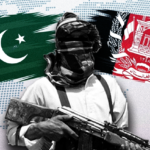The term BRIC was originally coined by Jim O’Neill, an economist at Goldman Sachs in 2001 to describe fast growing economies – Brazil, Russia, India and China – that he predicted would collectively dominate the global economy by 2050. Leaders of these four countries turned Goldman Sachs’ economic concept into a political entity by convening a summit in 2009 which also decided on Shanghai as its headquarter. In their second meeting in 2010, they invited South Africa to join, giving the group an African representation, BRIC becoming BRICS.
The BRICS nations encompass about 27% of the world’s land surface and 42% of the global population. The five have a combined nominal GDP of $28 trillion and a total GDP (PPP) of $57 trillion, representing 27% and 33% respectively of the global economic output. Over the years, BRICS has transformed into a more cohesive geopolitical bloc with annual summits coordinating multilateral policies.
The BRICS nations are considered the foremost geopolitical rival to the G7 bloc of leading advanced economies. Together, they have sought to act as a platform to challenge the global financial system dominated by the US and its allies in forums like the G-7, the International Monetary Fund and the World Bank. BRICS states also appear to be seeking diplomatic autonomy, for instance by taking positions on the war in Ukraine that are at odds with Washington’s view.
The BRICS five met in their landmark fifteenth summit in Johannesburg, South Africa from 22nd to 24th August, 2023 agreeing upon the induction of six new members – Argentina, Egypt, Ethiopia, Iran, Saudi Arabia and the United Arab Emirates. If this expansion goes through as envisaged by January 1, 2024, BRICS will represent almost half the world’s population. The grouping is also working on a country partner model to allow more states to be associated with its activities.
Indonesia, the largest potential new member, declined the invitation to join BRICS. The Jakarta Post reported that though Indonesia shares many of the objectives that BRICS has set out to achieve, it is in no rush to join the grouping. Indonesia sees its national interests would be best served by joining the Organization for Economic Cooperation and Development (OECD) made up of 38 mostly Western countries. If successful in its bid, Indonesia will be the third Asian member to join the OECD after Japan and South Korea. Aiming at becoming one of the top five global economies, Indonesia considers that the OECD rather than BRICS is the route to get there.
BRICS has so far been a platform to represent an alternate narrative in global affairs to the western grouping of G7. Soon, it would overtake the G7 in total GDP. To some observers, given the admission of Iran and the existing membership of China and Russia, an enlarged BRICS might be seen as a greater provocation to the US led west.
China and Russia reportedly pushed for a quick expansion of BRICS to increase their influence, while India expressed concern about admitting many new members too quickly(asiatimes.com). The same report adds that India’s concern has much to do with its disputes with China, as well as its close relationship with the United States. India, among other factors, is not for de-dollarisation wished by China or other members of BRICS.
BRICS is a work in progress, but it has already challenged the G7’s influence over the global order. An editorial by Bloomberg pointed out that BRICS was receiving greater popularity following the US turn away from global economic leadership during Trump and Biden presidencies. It stated that the IMF and the World Bank are increasingly rudderless. The WTO is all but defunct due to US obstruction. The organizing principle of US policy is no longer global prosperity but “Made in America.”
Emerging economies can be forgiven for seeking alternatives to a global order that seems to put them last. In an article in the Financial Times, Martin Wolff wrote that the BRICS countries share “a common desire not to be dependent on the whims of the US and its close allies which have dominated the world for the past two centuries.” This has led to apprehensions in many western capitals about China and Russia seeking to expand their role through BRICS to counter the West-led global financial system.
President Xi Jinping of China reacted to western fears by stressing the need for expanding the group to face a global “period of turbulence and transformation.” He went on to press for more members to “pool wisdom and efforts to make global governance more just and equitable.”
President Putin of Russia has pushed for de-dollarisation but this is a divisive proposal. Meanwhile the group has been debating the feasibility of introducing a single currency or trade in their currencies to reduce dependence on the dollar. Prospects of such a proposal getting adopted are slim as members like India and Brazil may not back the idea due to close ties with the US.
Evaluating the prospects of an enlarged BRICS, Sourabh Gupta, an Asia-Pacific international relations policy specialist writing for The Institute for China-America Studies (ICAS) expressed the view that “purposes and ambitions that animated the original members should serve as the principal doctrine for the expanded 11-member BRICS grouping.” For instance, it should remain an association without compulsory elements. Issues where interests do not overlap should be set aside. Continuing the group’s non-Western states character, more countries like Indonesia and Nigeria should be inducted.
Gupta argues that the expanded BRICS must remain the premier developing country platform for South-South cooperation. The New Development Bank established by BRICS should expand its imprint by accelerating and broadening its range of financing facilities. Similarly, its Contingent Reserve Arrangement should act as an Emerging Market Crisis Prevention Fund.
Finally, BRICS members should ramp up their political cooperation and speak in one voice on important global challenges of the day without aiming to splinter the international high table into rival political blocs. As the Johannesburg Declaration notes, “the BRICS seek to overcome polarity and division – not entrench it – and play its role in creating a world without barriers between North, South, East and West.
Gupta acknowledges that BRICS stand at the cusp of a new and complex era in global politics. “They must rise to the challenge with fairness and grace and restore a sense of community and equilibrium to the United Nations centred international economic and political order”.
Pakistan’s initial response to the expansion of BRICS from five to eleven members was noncommittal. According to media reports, foreign office sources said it was premature to draw conclusions when the group had yet to evolve a consensus on the expansion plan. Their cautious response appeared to suggest that Pakistan was not too keen to become part of bloc politics leading to rivalry between BRICS and G-7 representing powerful developed nations.
Pakistan’s former foreign secretary, Dr. Asad Majeed Khan delivered a keynote address at a roundtable organised by the National University of Science and Technology’s Institute of Policy Studies, pertaining to the impact of BRICS expansion on evolving global alignments. He expressed the view that BRICS was undergoing the process of institutionalization and strategically expanding thereby solidifying its position as a prominent global player.
Dr. Asad Majeed underscored that while the case for Pakistan’s closer engagement with BRICS was strong, the country could face challenges in terms of the question of membership of the grouping. This probably explained the lack of overt interest on Pakistan’s part to join BRICS. It was not clear if the government had made a study of the pros and cons of expressing a desire to be a part of an expanded BRICS.
It could be argued that countries like Indonesia and Pakistan, two important members of the global south, may not fully adhere to some of the group’s aims like de-dollarisation or its overt challenge to western domination of the global economic system.
Eventually, after further review and consultations, the government decided to apply for the membership of BRICS. Mumtaz Zahra Baloch, spokesperson for Pakistan’s Foreign Affairs Ministry, terming BRICS as “an important group of developing countries” disclosed on 23rd November, 2023 that the country had made a formal request to join the group. She went on to say, “We believe that by joining BRICS, Pakistan can play an important role in furthering international cooperation and revitalising inclusive multilateralism”.
Two days earlier, Pakistan’s ambassador in Moscow had told the Russian news agency that Pakistan had applied to become a member of BRICS, and was in the process of contacting member countries for extending support to Pakistan’s candidature in general and the Russian Federation in particular being host of the next BRICS summit.
These developments understandably led to speculation about whether Pakistan’s case for membership would have a smooth sailing or encounter objections, notably from India, which suffers from a negative reflex on matters concerning Pakistan. It remains to be seen whether Russia and China, two major countries in BRICS would be able to help India overcome its reticence to clear the way for BRICS to become a truly inclusive grouping of the global South.




